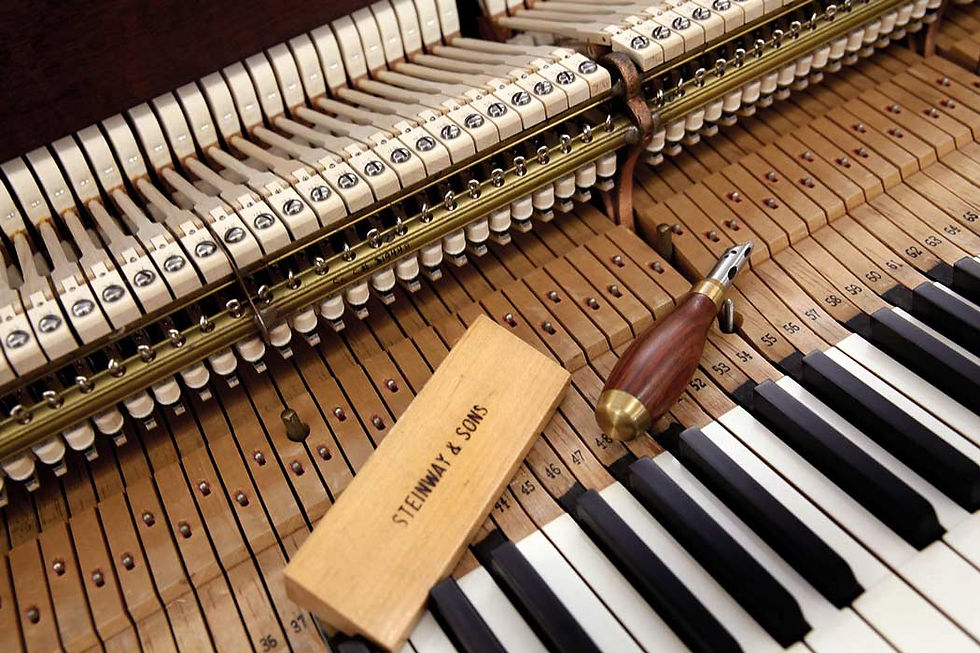The Best Environment for Your Piano
- dylanweiss2015
- Apr 28, 2025
- 2 min read
Your piano isn’t just a piece of furniture — it’s a living, breathing instrument made mostly of wood, felt, and metal. And just like any natural material, it reacts to the environment around it.
Keeping your piano in a healthy space is one of the easiest ways to protect its sound, touch, and overall lifespan.
Here’s what you need to know!
Temperature and Humidity: The Big Two
The two most important factors for your piano’s health are temperature and humidity.
Ideal Temperature: Try to keep the room around 68–72°F (20–22°C).
Pianos don't like extreme heat or cold. Big temperature swings can cause parts to expand and contract too quickly, leading to tuning instability and even damage to the wood and glue joints.
Ideal Humidity: Aim for a constant 40–50% relative humidity.
Too much moisture can swell the wood, rust the strings, and throw your tuning sharp.
Too little moisture can dry out the soundboard, crack the wood, and make the piano sound weak or brittle.
Consistency is even more important than hitting the “perfect” numbers. Pianos hate rapid changes!
Other Environmental Tips
Here are a few more simple ways to keep your piano happy:
Avoid placing it near heating/cooling vents. Blasts of hot or cold air can dry out or shock the piano.
Keep it away from direct sunlight. Sun can fade the finish and heat up the wood unevenly.
Don’t put it against an exterior wall (especially older homes). Walls facing the outside tend to be cooler and damper.
Use a humidity control system if needed. In areas with big seasonal swings (like Greenville, NC!), a small room humidifier in the winter and a dehumidifier in the summer can make a huge difference. For even better control, some people install Piano Life Saver Systems directly inside the piano.
What Happens If You Ignore the Environment?
Tuning won’t hold. Even if you get your piano tuned regularly, environmental stress can undo it quickly.
Wood parts can crack or warp.
Action parts can stiffen or become sluggish.
Strings and pins can corrode.
The soundboard — the heart of the piano — can suffer permanent damage.
And repairs can be much more expensive than the small effort it takes to protect your piano upfront.
The Bottom Line
Treat your piano like a living thing — give it a stable, comfortable home, and it will reward you with years of beautiful music!
Need help setting up the right environment for your piano? Whether it's advice on placement, humidity control systems, or just a check-up to see how your piano is holding up, feel free to reach out. I'm based in Greenville, NC and I’m always happy to help keep your piano at its best! 🎶


Comments